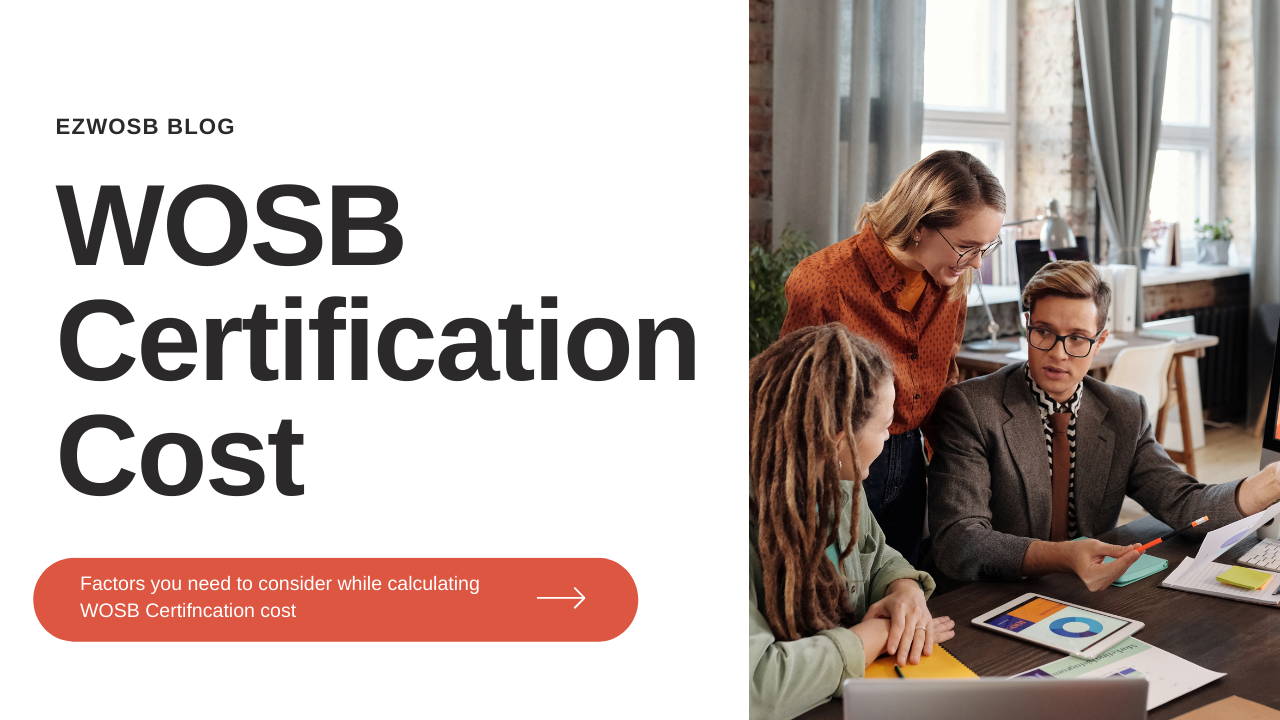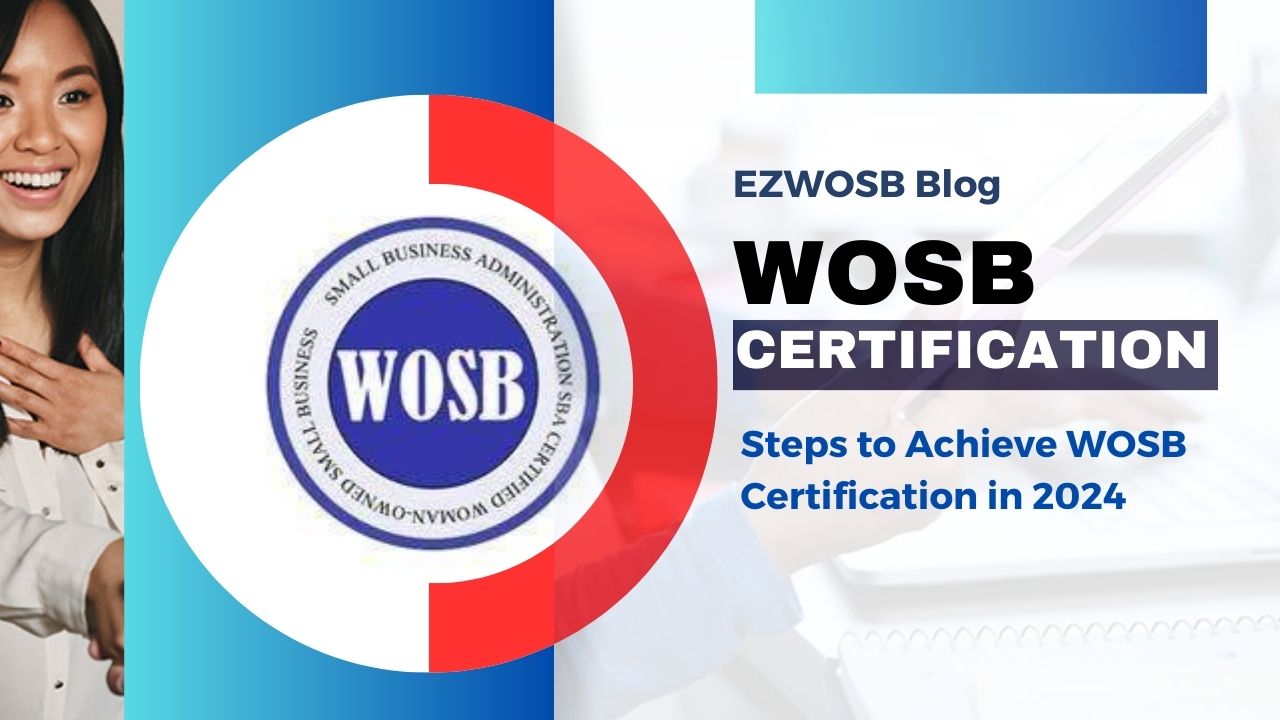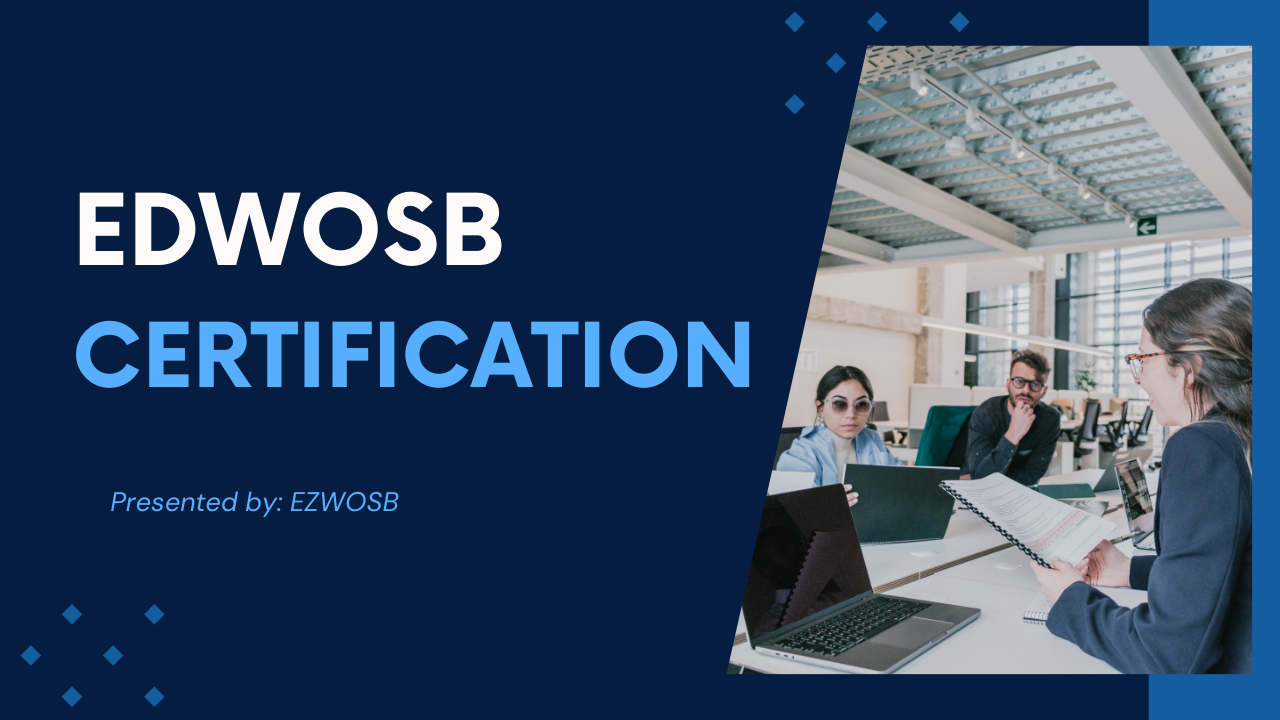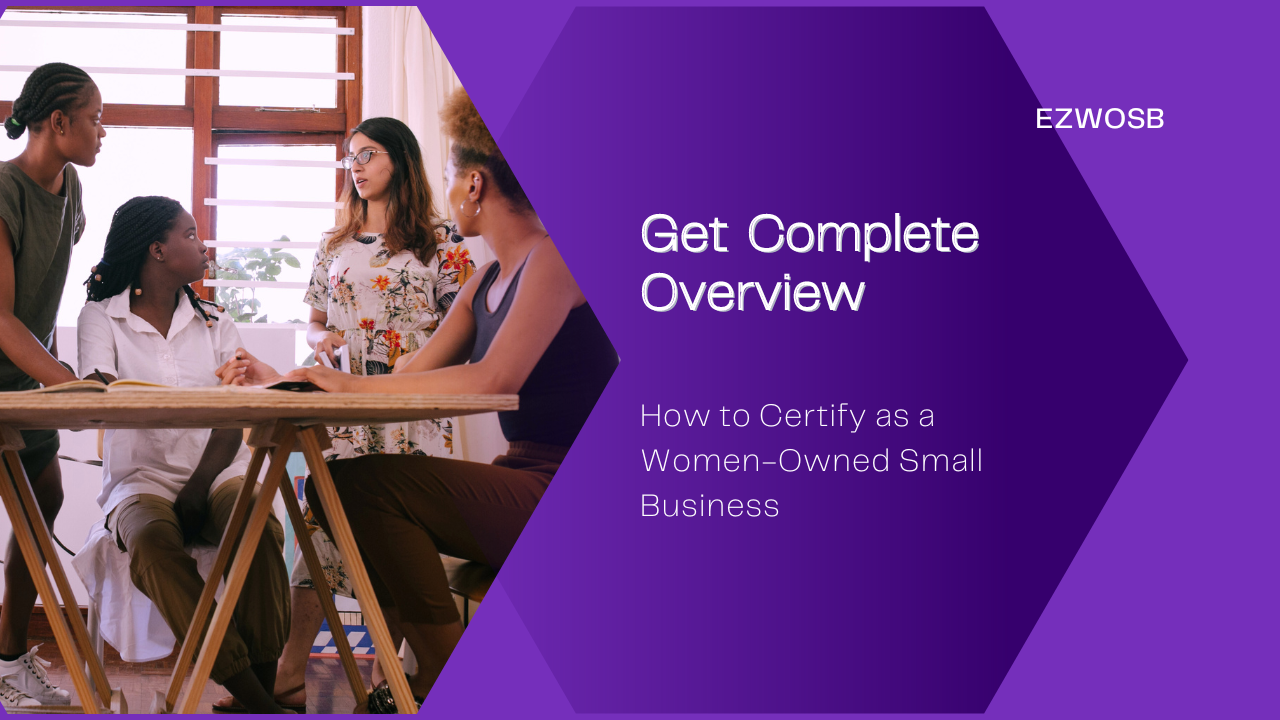In today's competitive business landscape, diversity and inclusion have taken center stage. Many organizations and government agencies actively seek to work with women-owned businesses, providing opportunities and advantages for women entrepreneurs. One way to showcase your business as a women-owned entity is through WOSB (Women-Owned Small Business) certification.
However, a common question that arises is, "Is it worth the cost to be a 'certified' women-owned business?" In this article, we will delve into the intricacies of WOSB certification cost to help you make an informed decision.
Understanding WOSB Certification
Before we dive into the cost aspect, let's briefly understand what WOSB certification entails. Obtaining Women-Owned Small Business (WOSB) certification signifies that your company is predominantly owned, managed, and run by women, with a minimum ownership stake of 51%. This official recognition serves as a crucial gateway to an array of lucrative federal contracting prospects.
Numerous government entities allocate specific contracts exclusively for WOSBs, promoting diversity and gender equality within the business landscape. Such contracts can encompass an extensive range of industries, offering ample opportunities for growth and development.
By securing WOSB certification, your enterprise not only gains access to these reserved contracts but also demonstrates your commitment to empowering women entrepreneurs and contributing to a more inclusive and equitable marketplace, fostering both economic and social progress.
The Benefits of WOSB Certification
Now that we've discussed the costs let's explore the benefits of obtaining WOSB certification, which will help you determine whether it's worth the investment.
- Access to Government Contracts: WOSB certification opens doors to federal government contracts, which can be lucrative opportunities. Many government agencies have specific quotas for awarding contracts to women-owned small businesses.
- Competitive Advantage: Having WOSB certification can give your business a competitive edge when bidding for contracts, as it demonstrates your commitment to diversity and inclusion.
- Networking Opportunities: Certification often grants you access to networking events and resources that can help you grow your business. You can connect with other women entrepreneurs and potential clients, leading to valuable partnerships.
- Enhanced Credibility: WOSB certification enhances your business's credibility and reputation, both in the public and private sectors. Clients and partners may view your certification as a symbol of trustworthiness.
- Business Growth: As you secure government contracts and expand your client base, your business is likely to experience growth, potentially offsetting the initial certification costs.
Maximizing the ROI of WOSB Certification
To make the most of your investment in WOSB certification, consider these tips:
- Strategic Planning: Crafting a comprehensive business plan is essential. Clearly articulate how your WOSB certification will be leveraged to secure contracts and fuel business expansion. Define your target markets, competitive strategies, and financial projections. A well-thought-out plan will guide your efforts and impress potential clients.
- Market Research: Research is key. Identify government agencies and private sector clients actively seeking partnerships with women-owned businesses. Tailor your marketing and outreach to align with their needs and priorities. Demonstrating a deep understanding of their requirements can significantly increase your chances of landing contracts.
- Network Actively: Attend events, workshops, and conferences organized by your certifying agency. Actively engage in networking opportunities to build relationships with decision-makers, potential partners, and fellow entrepreneurs. These connections can lead to valuable contract opportunities and collaborations.
- Stay Informed: Stay vigilant about changes in certification requirements and regulations. Regularly update your knowledge to ensure ongoing eligibility and compliance. Failing to do so could jeopardize your access to contract opportunities.
- Diversify Revenue Streams: While government contracts can be lucrative, it's wise not to place all your eggs in one basket. Diversify your revenue streams by exploring new markets, offering additional services, or expanding into related industries. This strategy reduces risk and ensures your business remains resilient even in fluctuating economic conditions.
The Investment in WOSB Certification
Now, let's talk about the cost involved in obtaining and maintaining WOSB certification. While it's true that there are expenses associated with the certification process, it's essential to view it as an investment rather than a mere expense. Let's break down the costs:
- Application Fee: To apply for WOSB certification, you need to pay an application fee. The exact fee may vary depending on the certifying agency, but it's generally in the range of a few hundred dollars. This fee covers the administrative costs of processing your application.
- Document Preparation Costs: You'll need to gather various documents to support your application, such as tax returns, financial statements, and legal documentation. While you might already have some of these documents, you may incur additional expenses for document preparation, notarization, and legal advice to ensure everything is in order.
- Third-Party Certification: While you can self-certify as a WOSB, many businesses choose to use a third-party certifier. This adds an extra layer of credibility to your certification, but it comes with its own fees. The cost of third-party certification can range from several hundred to a couple of thousand dollars.
- Annual Renewal Fee: WOSB certification isn't a one-time expense. You'll need to renew it annually, which often involves paying a renewal fee. This fee helps cover the ongoing administrative costs of maintaining the certification.
- Time and Effort: It's important to consider the time and effort you and your team will invest in the certification process. While this might not be a direct financial cost, it's valuable to account for the resources allocated to completing the necessary paperwork and meeting the eligibility requirements.
Factors You Need to Consider While Calculating WOSB Certification Cost
Calculating the Women-Owned Small Business (WOSB) certification cost involves considering various factors to ensure an accurate budget. Here are some key factors to take into account:
- Certification Type: Determine the specific certification you need, such as WOSB or Economically Disadvantaged WOSB (EDWOSB), as the requirements and costs may vary.
- Eligibility Criteria: Assess your business's eligibility based on factors like ownership, control, and size standards. Ensure you meet the criteria before investing in the certification process.
- Documentation: Collect all required documents, including financial statements, tax returns, corporate records, and personal identification documents. Costs may include obtaining, organizing, and notarizing these documents.
- Application Fees: Be prepared to pay application fees to the certifying agency, such as the Small Business Administration (SBA). These fees can vary, so check the current fee structure.
- Legal and Professional Fees: You might need legal or professional assistance to complete the application accurately. Factor in attorney fees or consultant charges for reviewing and preparing your application.
- Travel and Administrative Costs: If you need to attend interviews, meetings, or site visits during the certification process, consider travel expenses, such as transportation, accommodation, and meals.
- Time Investment: Calculate the opportunity cost of your time spent on the certification process, including gathering documents, attending meetings, and preparing the application.
- Renewal Fees: Keep in mind that certifications often require periodic renewal, which may involve additional fees. Be prepared for ongoing costs to maintain your certification status.
- Additional Requirements: Some certifications may have specific requirements, like training or bonding, which can come with associated costs.
- Appeal or Reconsideration Costs: In case your initial application is denied, you might incur expenses related to appealing or requesting reconsideration of your certification.
- Miscellaneous Costs: Consider any unforeseen or miscellaneous expenses that may arise during the certification process.
- Opportunity Benefits: While not a direct cost, factor in the potential benefits and opportunities that WOSB certification can bring, such as access to government contracts.
To determine the total WOSB certification cost, you should carefully review the certification requirements and consult with the certifying agency or a business advisor who can provide guidance on the specific costs involved in your particular situation. Keep in mind that the investment in WOSB certification can be valuable in accessing new business opportunities and markets.
Conclusion: Is it Worth the Cost?
Well, the decision to pursue WOSB certification should be based on a careful evaluation of your business goals and resources. While there are costs associated with certification, the potential benefits, including access to government con tracts and enhanced credibility, can make it a worthwhile investment.
Remember that the WOSB certification cost extendsbeyond financial gains; it also contributes to the broader goals of promoting diversity and inclusion in the business world. So, when considering the cost, factor in the long-term impact on your business's growth and reputation.
If your business aligns with the opportunities provided by certification, it can be a valuable step toward success in today's competitive market.








